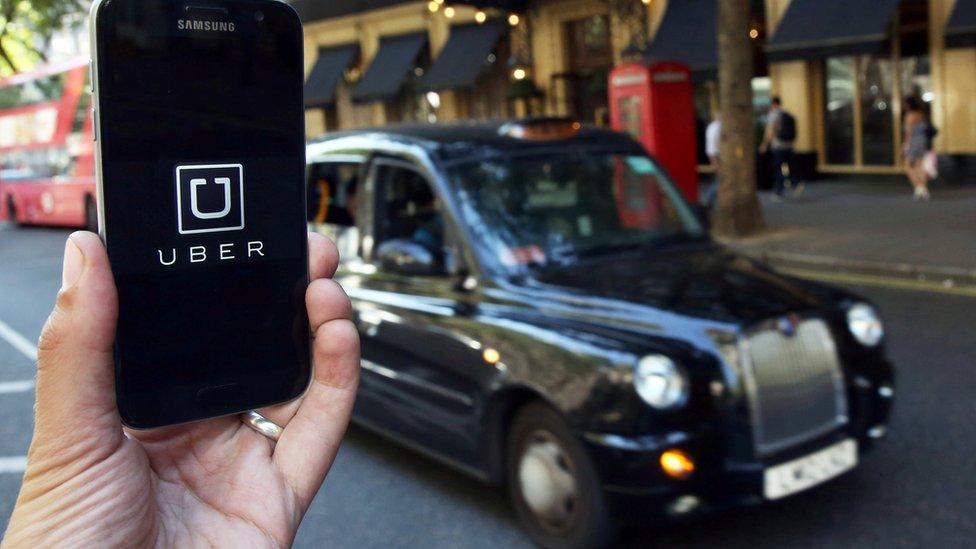Uber lodges appeal over London ban
- Published
- comments

Some 3.5 million passengers and 40,000 drivers use the Uber app in London
Uber has filed an appeal against the decision by London authorities to deny it a licence to operate in London.
Last month, Transport for London (TfL) refused Uber a new private hire licence, saying the ride-hailing firm was not fit and proper.
TfL said it took the decision on the grounds of "public safety and security implications".
The appeal process could take months, during which time Uber can continue to operate in London.
"While we have today filed our appeal so that Londoners can continue using our app, we hope to continue having constructive discussions with Transport for London. As our new CEO [chief executive] has said, we are determined to make things right," an Uber spokesperson said.
TfL "noted" the appeal but said it would not be commenting before the hearings.
'Constructive talks'
Some 3.5 million passengers and 40,000 drivers use the Uber app in London.
Earlier this month, Uber's new chief executive Dara Khosrowshahi met Mike Brown, who runs Transport for London.
Uber described those talks as "constructive", while TfL said the talks "centred on what needs to happen to ensure a thriving taxi and private hire market in London".
When TfL denied Uber its licence last month it listed four main concerns about Uber's operation:
The way it reported serious criminal offences
Its approach to obtaining medical certificates
Uber's procedure for Enhanced Disclosure and Barring Service (DBS) checks for drivers
The use of software that TfL claims could block the work of regulators
Uber disputed those complaints, saying it had a special procedure for dealing with allegations of criminal offences.
It argued that DBS checks were properly handled by a third party organisation and that TfL's concerns over its use of software were unjustified.
Troubled times
Uber's trouble in London adds to a long list of problems faced by the company.
In July, chief executive Travis Kalanick, who helped found the company in 2009, resigned following a series of scandals and criticism of his management style.
In June, 20 staff were sacked in the US after a law firm investigated complaints made to the company about sexual harassment, bullying and retaliation for reporting problems.
Last year, Uber lost a landmark employment tribunal in the UK which ruled drivers should be classed as workers rather than being self-employed.